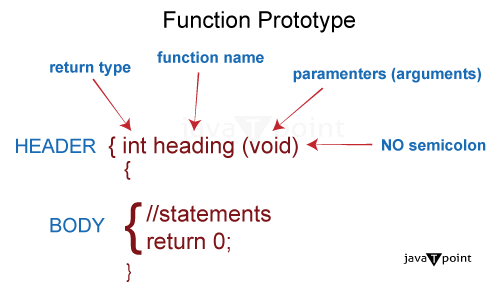Argument Coercion in C/C++Argument coercion is also known as implicit type conversion or type coercion. It is a fundamental part of the C/C++ programming languages. It means the compiler converts automatically from one data type to another when necessary. This automatic conversion ensures compatibility and facilitates seamless communication between different data types in expressions and function calls. 
Basics of C/C++ Data:C/C++ supports various data types, such as integers, floats, characters, pointers, and user-defined types. Each data type occupies a certain amount of memory and has different characteristics such as range, precision and representation. Type conversion:Type conversion is the process of converting a value from one data type to another. In C/C++, type conversions can be classified into two types: implicit conversion and explicit conversion. 1. Implicit conversion: Implicit conversion, also called forcing, occurs automatically in the compiler without explicit instructions from the programmer. It usually happens when different types of operands are used together in expressions or when arguments are passed to functions. Some examples of implicit conversion are promoting a smaller data type to a larger one, converting a floating point value to an integer, or converting a pointer to a compatible type. 2. Explicit Conversion: Explicit conversion, also known as typing, means that the programmer specifically specifies the desired conversion using casting operators. It provides better control over the type conversion process and can be used to convert incompatible types or override implicit conversions. Examples of explicit conversions use the (type) operator in C or static_castandlt;typeandgt;() in C++. Standard Arithmetic Conversion:"Standard Arithmetic Conversion" is a rule defined by the C/C++ standards that specifies how operands containing different types of data types are converted before performing arithmetic or relational operations. These conversions ensure that operators are promoted to a common type, facilitating consistent behavior across applications. Argument Coercion Rules:Argument coercion C/C++ follows certain rules and precedence when determining the type of implicit conversions. Some of the most important rules are: 1. Integral Promotion: Smaller integral types, such as char or short, are automatically promoted to larger types, such as int or unsigned int when used in expressions. It prevents loss of precision and ensures that matching values are used when performing arithmetic operations. 2. Floating-point promotion: It is similar to integral promotion. Smaller floating-point types, such as floating-point, are promoted to larger types, such as double, to preserve the consistency of arithmetic operations. 3. Default Argument Promotion: When arguments are passed to functions, default argument promotion occurs where smaller arguments are promoted to larger types based on the function and prototype. It ensures that function parameters are compatible with the arguments given by the caller. 4. Conversion hierarchy: When multiple implicit conversions are possible, the compiler follows the hierarchy to determine the most appropriate conversion. Hierarchy generally prefers transformations that preserve precision and minimize data loss. Example:Let us take an example to illustrate the Argument coercion in C. Output: The number is: 10.00 Explanation:
Unspoken Conversion in a Function Invocation:
Skills and Considerations:While forcing arguments can be convenient, it's essential to be aware of potential pitfalls and considerations: 1. Loss of precision: Implicit conversions can sometimes cause a loss of precision, especially when converting between different numeric data types. Developers should carefully consider the implications of such conversions, especially in critical applications where accuracy is paramount. 2. Unexpected behavior: Implicit conversions can sometimes cause unexpected behavior if the developer is unaware of the conversion rules or makes incorrect assumptions about data types. It is important to understand the impact of implicit conversions and to write clean and predictable code. 3. Performance considerations: Although the compiler performs implicit conversions automatically, they can affect performance, especially in tight loops or performance-critical sections of code. Excessive use of indirect conversions can lead to unnecessary overhead, and developers should try to minimize conversions whenever possible. Best PracticesConsider the following best practices to mitigate potential problems with argument forcing: 1. Use explicit conversion when necessary: In situations where clarity or precision is most important, consider explicit conversion to convey the intent of the argument code. Explicit conversion provides fine-grained control over the type conversion process and can help prevent unwanted behaviour. 2. Document indirect conversions: Document indirect conversions in the code so that other developers understand the reasoning behind the results and their possible consequences. Clear documentation can help avoid misunderstandings and facilitate collaboration between team members. 3. Perform type checking and validation: It includes type-checking and validation mechanisms in the code to detect potential problems with argument coercion at compile or runtime. Type-checking tools, static analyzers, and compiler warnings can help identify unwanted conversions and potential sources of errors.
Next TopicC++17 Features and Enhancements:
|
 For Videos Join Our Youtube Channel: Join Now
For Videos Join Our Youtube Channel: Join Now
Feedback
- Send your Feedback to [email protected]
Help Others, Please Share










